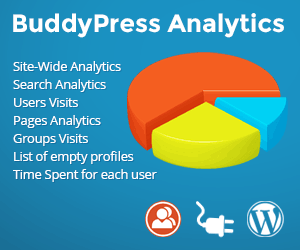How to Migrate from WordPress to HTML
WordPress makes it effortless for almost anyone to create a website. On a more technical level, WordPress is an open source Content Management System (CMS). A CMS allows users to create and manage a website without knowing how to code. WordPress is also highly customizable with an immense selection of plugins and themes. All these factors make it one of the most favorite systems for websites.
Hugo is also a framework for creating websites. However, Hugo accomplishes this in a completely different way. Hugo is a Static Site Generator (SSG) and builds a page whenever content is created or updated. This is opposed to dynamic site generators, like WordPress, which sends a new page every time the page is requested. Since the generator is not building a new page at every request, sites made with a SSG are fast and secure.
You also know that with WordPress there is an immense problem of Scalability and Performance.
You will notice it as you start putting content on your site more often, over time, it will become painfully sluggish.
What is under the hood of WordPress
Let see what happens under the hood when you use WordPress. For setting up the WordPress site you need to fix the following component so that your blog/website is live on the internet.
- Domain Name
- Hosting service
- WordPress (with a Database)
As you can see when someone is going to access your website the request will go through three layers.
What is under the hood of Hugo
But in contrast when you use GoHugo static site generator then you do not need to worry about the Database and you only need to set up following components
- Domain Name
- Hosting Service
- GoHugo (No Database)
As you can see when you use a static site generator you do not need to worry about the database and it is one the advantage in terms of hosting cost as well as performance.
Core Web Vitals
Google has released new user experience matrices by the name Core Web Vitals. With Core Web Vitals Google is putting much more importance on user experience.
However, if you are using Hugo then you need not worry about this new change because Hugo is ultralight and ultra-fast so user experience with Hugo will always be great.
Conclusion
Our conclusions regarding the WordPress to Hugo migration:
- Hugo gives you full control over your website but in WordPress, you have a minimal option when wanting to change CSS , JavaScript.
- Hugo is very lightweight and effortless to setup but WordPress is hard to setup.
- With Hugo you can export your complete website in single command hugo and it will export your complete website into single directory public but in WordPress you need to rely on third-party plugins.
- In Hugo there are no concepts of plugins, so if you are using WordPress and paying monthly charges for plugins then Hugo will be a cost-saver for you.
- With Hugo’s simplicity we need not worry about database everything is static HTML pages but in WordPress you are dealing with an additional layer of Database.
- Hugo is lightning quick in terms of performance because it does not have a database running in the background.
- Hugo runs on Jamstack so there are many free hosting service provider which will help you to host your Hugo website without any cost.
- From a security point of view again Hugo is the winner because it generates static websites without anything that can be hacked.
All in all, if you feel like Hugo is for you then just do not wait to go for it and dump the WordPress. Trust us, you will never regret your decision.
If you ever need help in migrating your WordPress site to Hugo checkout our WordPress to Static service.
Don’t wait for your ranking to suffer, go static now!



